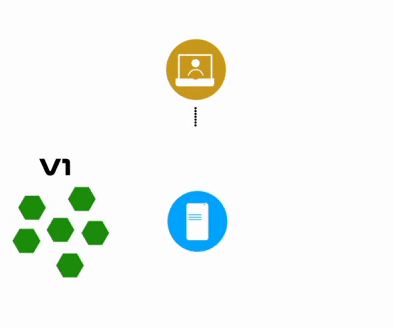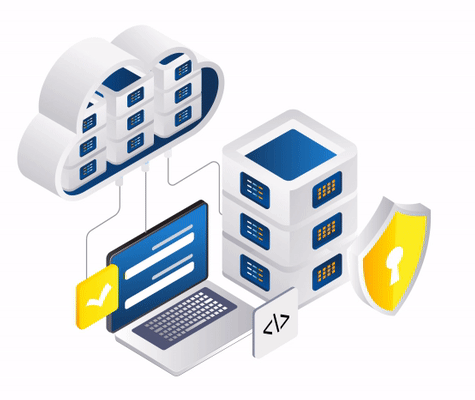As the digital workplace continues to mature, organizations are increasingly relying on endpoint management software to maintain operational efficiency and security across their networks. This evolution is paralleled by the growing complexity of IT environments, where remote monitoring and management become crucial to overseeing all the devices connected to a network.
Managed Service Providers (MSPs), with their specialized expertise, can directly improve the performance of endpoint management systems. That way, organizations can leverage the full potential of their IT investments.
Related article: How IT managers and MSPs can collaborate to deliver ITSM efficiency
Importance of Endpoint Management Software
Endpoint management software provides the capabilities to manage and secure devices accessing organizational resources. It includes laptops, desktops, mobile devices, and the expanding universe of IoT devices, each representing a potential vector for security threats. Intelligent endpoint management is critical for monitoring, maintaining, and securing these devices against the backdrop of an increasingly complex cyber threat landscape.
Deploying and managing endpoint management software, however, presents major challenges. Organizations must navigate the complexities of diverse device ecosystems so that all endpoints are consistently updated with the latest security patches and configurations.
Moreover, the fast-paced evolution of technology necessitates agile management practices that can quickly adapt to new threats and compliance requirements. So, the integration of remote monitoring and management, alongside network monitoring tools, becomes invaluable, offering organizations a full view of their IT environment’s health and security posture.
Yet, maximizing the benefits of endpoint management software and associated tools demands specialized knowledge and continuous oversight — resources that are often scarce, especially within small and medium-sized enterprises. MSPs address this gap by providing access to advanced remote monitoring and management capabilities, network monitoring tools, and the expertise needed to deploy, manage, and optimize these solutions.
How MSPs Enhance Adoption of Endpoint Management Software
Strategic deployment

MSPs customize the deployment of endpoint management software to meet unique organizational demands. They start with a full assessment of the organization’s current infrastructure, security requirements, and organizational objectives.
It makes sure that the endpoint management solution integrates seamlessly with existing systems and supports long-term goals, enhancing operational security from the outset. This strategic deployment often involves remote monitoring and management software to deliver comprehensive oversight.
Customized solutions
Recognizing that no two organizations are alike, MSPs offer customized endpoint management solutions. They adjust settings, policies, and configurations to match the unique demands and workflow of each business so that the software provides maximum protection and functionality.
Such customization extends to selecting specific features that align with organizational priorities, such as mobile device management for a workforce on the go or advanced security protocols for sensitive data. The use of RMM tools is pivotal in customizing these solutions to fit the precise needs of each client.
Proactive maintenance and support
Beyond initial setup, MSPs provide ongoing maintenance and support for endpoint management software. Following a proactive service model includes regular monitoring for issues, timely updates, and fast troubleshooting to resolve problems before they impact the business.
The result is reduced downtime, maintained productivity, and a secure IT environment that supports operational continuity. MSPs leverage remote monitoring and management techniques alongside network monitoring tools to achieve this level of proactive support.
Maximize the ROI of Endpoint Management Software with MSPs
Cost savings
MSPs help organizations maximize their ROI through cost savings. By optimizing the deployment and management of endpoint management software, MSPs ensure that organizations only pay for what they need and use. They also help avoid the costs associated with security breaches, data loss, and system downtime.
Improved security posture

With cybersecurity threats becoming smarter daily, MSPs leverage endpoint management software to boost security defenses. They implement advanced security features, conduct regular vulnerability assessments, and drive compliance with industry regulations. It reduces the risk of costly security incidents and builds trust with customers and partners.
Higher productivity
MSPs understand that technology should enable, not hinder, operations. By streamlining the management of endpoints, ensuring devices are always operational, and providing end-users with the support they need, MSPs directly contribute to enhanced productivity. Smart device management and support minimize disruptions, allowing employees to focus on their core responsibilities.
Scalability and flexibility
As organizations grow, their technology needs change. MSPs ensure that endpoint management solutions can scale and adapt to these changing needs. Whether it’s expanding to new locations, supporting more remote workers, or integrating new technologies, MSPs provide the scalability and flexibility needed to thrive in a dynamic market.
Comprehensive coverage
Leveraging remote monitoring and management techniques, MSPs guarantee that all endpoints, regardless of their location, are integrated into the organization’s endpoint management strategy.
Security relevancy
MSPs utilize endpoint management software and network monitoring software so that all devices are promptly updated with the latest patches and configurations, safeguarding against vulnerabilities and enhancing network security.
Compliance adherence
With their deep understanding of regulatory standards, MSPs make sure that an organization’s endpoint management strategy adheres to necessary compliance frameworks, thereby mitigating legal and financial risks. The implementation of network monitoring tools is crucial in maintaining this compliance and ensuring that every aspect of the endpoint management strategy is up to code.
Related blog: Why your MSPs and IT managers must collaborate to ensure superior DEX



















